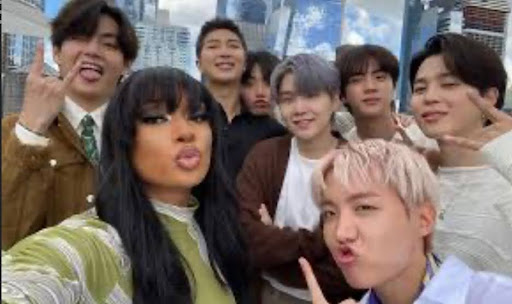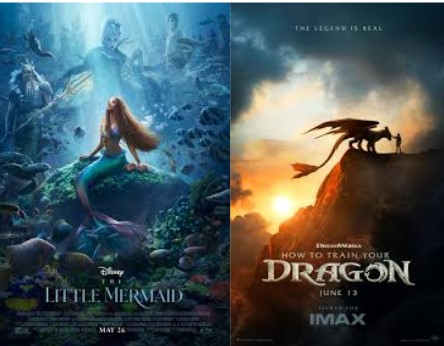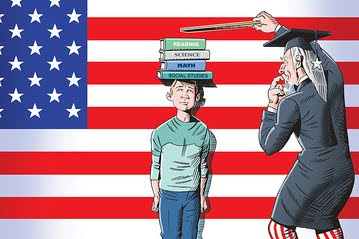Today’s globalization of music landscapes significantly impacts students: Pop, primarily by Western artists since the 1950s, and K-pop or Korean pop from South Korea since 1992, emphasize catchy melodies and simple song structures that reflect their beliefs.
Pop music has genres that portray mixtures of R&B, hip-hop, electronic dance, and rock. Artists like Beyoncé, Michael Jackson, Taylor Swift, Justin Bieber, Drake, Shakira, and so on have shaped the articulation of Western music globally, emphasizing their empowerment and self-expression through their music and performances even now. Compared to K-pop, pop music artists are usually individuals of different ages who typically learn to sing and perform at their own speed.
On the other hand, K-pop represents a lot of Korea’s culture. Primarily, Korean teenagers who want to become K-pop artists trained rigorously for multiple years to strengthen their talents in entertainment agencies, also known as talent agencies or idol factories. They improve upon their singing, dancing, and critical performance skills years before debuting into a group or solo. These intense eruditions characterize the group’s performances by synchronized choreography, detailed arrangement or structure, and eye-catching visuals and appearances. K-pop artists like BTS, Blackpink, IU, TXT, Twice, Exo, Stray Kids, TWICE, New Jeans etc.
There have been various achievements in the world of music. Artists from both Pop and K-pop have received Western awards. Three major music awards held in the fall are the American Music Awards, the Grammy Awards, and the Billboard Music Awards. These awards are also for global musicians who deserve them, including pop and K-pop artists. Still, in South Korea, there are separate award shows like KMA each year, so this year is KMA 2024, K-POP MAMA, 33rd Seoul Music Awards, 38th Golden Disc Awards, and others—artists won some global awards.
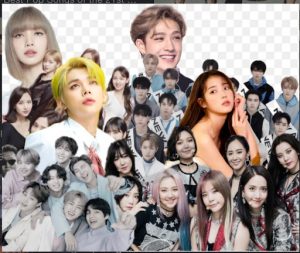
Suellen Pinheiro (9) began listening to K-pop music in 2020 and still does almost daily. She loved it immediately, making it better than pop. Her favorite K-pop group is Bts, a third-generation boy group among the highest-rated groups in South Korea and globally. “My favorite member is Jhope, one of the seven members of Bts. He is always lovely and funny.” Her favorite song is “Blood Sweat Tears,” but she would recommend Dynamite because it has won many awards globally. She loves all K-pop songs, but the old songs are better for her. Listening to K-pop has impacted her life, so she now has the ambition to learn the Korean language and culture.
Queen Mitchell (11) commenced listening to K-pop in 2014 when it became global. “K-pop is more in-depth at times, and it helps me push through just by reading the lyrics and inspiring me. I think the old and new K-pop are still the same. It’s just what people enjoyed, and I find both inspiring.” Even though she does not listen to it much nowadays, she used to listen to it often.” A song I’d recommend listening to is “Twilight” by ONEUS. I hate how toxic my favorite artist’s fanbase can get over little things. My choice of music is spread around to other people, and nowadays, most people listen to K-pop. It was hated a lot when I was younger, but not anymore, which makes it easier to connect with people.”
Belicia Amish (9) said,” I started listening to K-pop when I was 9 or 10 in 6th grade.” She would recommend “Rock with You” by Seventeen if you are new to K-pop. She used to listen to it daily but has been busy, so she listens often. “I also suggest that people start listening to my favorite K-pop song, easy by le Serafim.”
Jennifer Catameda (9) began listening to K-pop about five years ago when it started going viral: “My treasured group is Stray Kids, and my bias is Felix. I like their Thunderous,’ but I recommend that people listen to all Blackpinknk songs because I also really like them.” K-pop has made Jennifer curious about Korean culture, such as its language, food, and even how it lives.
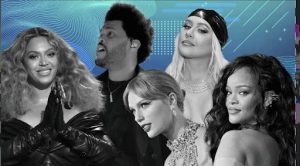
Kennedy Hayes (9) started listening to pop music when she was born because of her mom. She has listened to various types of pop music: “I do not have a favorite song because I have listened to many songs.” She would recommend you research because there is every type of music you want in pop music. She likes all pop music, but she has a lot of memories of the old ones. Kennedy feels good and refreshed to do work when she listens to pop music.
Amari Haris (9) commenced listening to pop music as a child because of her family: “My favorite artist would have to be Michael Jakaonand favorite among Chicago, and the old songs are better than the new songs.” She would recommend “Tadow” by FKG and Mesego.
In conclusion, the diffusion of music is now pervasive as different genres of music are becoming popular. All these artists gain awards depending on how the world sees their music each year. Many people started listening to songs through social media or influenced by others. K-pop because there have been groups that have merged to create so many catchy melodies like “Left and Right” by Jungkook and Charlie Puth. Their music revolutions all display how something small can become global.
